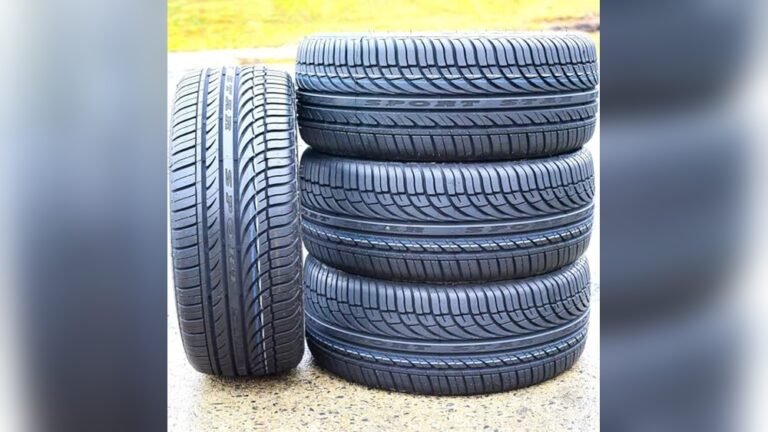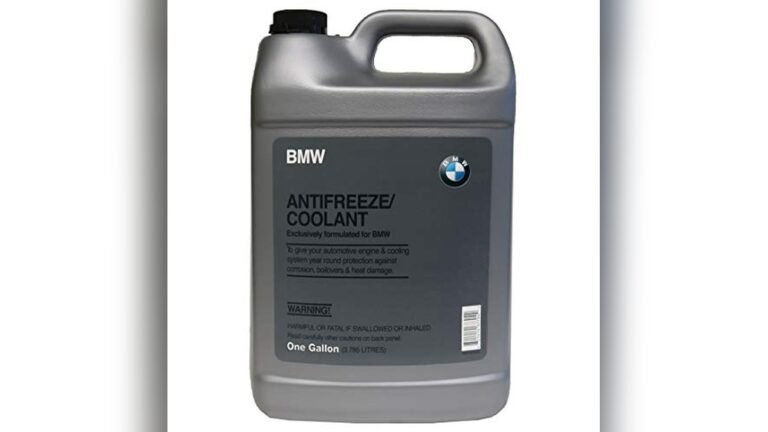Your BMW may be knocking due to issues with the fuel quality or a problem with the engine’s timing. Introducing a knocking sound from your BMW can be concerning, as it indicates potential issues with the fuel quality or the engine’s timing.
This knocking noise, often described as a repetitive knocking or tapping sound, typically occurs when the air and fuel mixture in the cylinders combust incorrectly or at the wrong time. Failing to address this issue promptly can lead to significant engine damage.
Therefore, it is crucial to identify the underlying cause of the knocking noise and take appropriate measures to resolve it. This article will explore some common reasons why your BMW might be knocking and provide insights on what steps you can take to address the issue.
Common Culprits Behind Engine Noises
Worn spark plugs and ignition system issues are often to blame for a knocking sound in your BMW’s engine. The spark plugs provide the necessary spark to ignite the air-fuel mixture, and over time, they can wear out and become ineffective. Ignition system issues, such as a faulty ignition coil or distributor, can also cause a knocking noise.
Another common culprit is low-quality fuel that can lead to engine detonation. This occurs when the air-fuel mixture ignites prematurely, causing a knocking sound. Using a higher octane fuel can help prevent detonation and reduce knocking.
Faulty fuel injectors can also contribute to engine knocking. When the fuel injectors are not functioning properly, the fuel mixture may not be distributed evenly, resulting in incomplete combustion and knocking. Regular maintenance and cleaning of the fuel injectors can help prevent this issue.
| Common Culprits Behind Engine Noises |
|---|
| Worn spark plugs and ignition system issues |
| Low-quality fuel causing engine detonation |
| Faulty fuel injectors and their impact on combustion |
Mechanical Malfunctions Causing Bmw Knocking
There are several mechanical malfunctions that can cause knocking in your BMW engine. One common issue is timing chain and belt tension problems. When the timing chain or belt becomes loose or worn out, it can cause the engine to knock. This is because the timing of the engine’s moving parts becomes disrupted, leading to inefficient combustion and knocking noises.
Another potential cause of knocking in a BMW engine is worn bearings. Over time, the bearings in the engine can wear down due to regular use, lack of lubrication, or manufacturing defects. When this happens, the moving parts of the engine can no longer rotate smoothly, resulting in knocking sounds. It is important to address bearing wear promptly to prevent further damage to the engine.
Additionally, broken or loose engine mounts can contribute to knocking. Engine mounts are responsible for securing the engine and reducing vibrations. If the mounts become damaged or loose, the engine may move excessively and make knocking noises. It is crucial to have the engine mounts inspected and replaced if necessary to eliminate the knocking problem.
Early Detection Tips
Engine knocking is a common issue experienced by BMW owners, and early detection is crucial in preventing further damage to the engine. Recognizing the signs of engine knocking can help you take prompt action. One of the first signs is a knocking or pinging sound coming from the engine. This noise is usually more pronounced during acceleration or when the engine is under load.
Regular maintenance checks play a vital role in preventing noise escalation. Keeping up with oil changes, filter replacements, and spark plug inspections can help identify potential causes of engine knocking, such as worn-out parts or dirty components.
Another factor that contributes to engine knocking is using the wrong oil and fuel grade. Using the recommended oil viscosity and the correct fuel octane rating can ensure optimal performance and minimize the chances of knocking.
By paying attention to these early detection tips and performing regular maintenance checks, you can address engine knocking issues promptly, extending the lifespan of your BMW’s engine and ensuring a smooth driving experience.
Advanced Bmw Knocking Noise Insights
Engine knocking in BMW vehicles can be a cause for concern, as it is often an indicator of an underlying issue. Understanding the factors that contribute to knocking noises can help diagnose and address the problem effectively. One important factor to consider is engine load. When the engine is under high load, such as during acceleration or towing, the likelihood of knocking increases. Another factor to explore is the role of the emissions system. Malfunctions or clogs in this system can lead to abnormal combustion, resulting in knocking sounds. Additionally, engine heat can also play a role in producing these noises. As the engine temperature rises, the likelihood of knocking increases. It is important to identify the source of the knocking noise and address it promptly to prevent further damage to the BMW engine.
| Factors contributing to BMW knocking |
|---|
| Engine Load |
| Emissions System |
| Engine Heat |
Professional Vs. Diy Remedies
Knocking noises in your BMW can be concerning, but understanding the professional and DIY remedies can help you tackle the issue effectively. While some cases may require expert mechanical intervention, there are certain instances where you can safely investigate and address the knocking noise at home.
Here are some guidelines to follow for a safe at-home investigation:
- Ensure you have the necessary tools and technologies to diagnose the engine sounds.
- Start by inspecting the engine bay and checking for any loose components or damaged parts.
- Scan for error codes using an OBD-II scanner to identify any potential issues.
- Check the oil level and quality, as low or dirty oil can contribute to engine knocking.
- Inspect the fuel system for any clogs or leaks that may be causing the knocking sound.
- Verify the condition of the spark plugs and ignition system to ensure proper combustion.
If you have completed these steps and the knocking noise persists or worsens, it is recommended to seek expert mechanical intervention. Professional technicians have the expertise and specialized equipment to diagnose and resolve complex engine issues that DIY methods may not address. Remember, the safety and performance of your BMW should always be a priority, so never hesitate to consult a professional if necessary.

Credit: www.reddit.com
Protecting Your Bmw From Future Knocking Issues
Knocking in your BMW can be a concerning issue, but there are steps you can take to protect your vehicle and prevent future problems. One of the best practices for engine care and longevity is to use fuel and oil additives specifically designed to reduce knocking. These additives help clean and lubricate the engine, reducing friction and minimizing knocking sounds.
In addition to using additives, it’s important to establish a regular inspection schedule to keep your BMW engine performing at its peak. Regular inspections allow you to detect and address any potential issues before they become major problems. This includes checking for any signs of wear or damage, ensuring proper oil levels, and monitoring engine performance.
By following these best practices and implementing a regular maintenance routine, you can protect your BMW from future knocking issues and enjoy optimal performance and longevity from your vehicle.
Frequently Asked Questions On Why Is My Bmw Knocking
Why Is My Bmw Knocking?
The knocking sound in your BMW could be due to various reasons such as worn-out engine components, low-quality fuel, or incorrect ignition timing. It is important to diagnose and fix the issue promptly to avoid further damage to your vehicle’s engine.
Consulting a professional mechanic is recommended for a thorough assessment and proper repairs.
How Can I Prevent My Bmw From Knocking?
To prevent knocking in your BMW, ensure that you are using high-quality fuel with the correct octane rating. Regularly servicing and maintaining your vehicle, including oil changes and spark plug replacements, can also help prevent knocking. Avoid aggressive driving and excessive load on the engine, as well as promptly addressing any engine performance issues that may arise.
How Do I Know If My Bmw’s Knocking Is Serious?
If the knocking sound in your BMW is accompanied by other symptoms such as loss of power, rough idling, or the check engine light turning on, it could indicate a more serious problem. In such cases, it is crucial to have your vehicle inspected by a qualified mechanic as soon as possible to identify the root cause and prevent further damage to your BMW’s engine.
Conclusion
If you notice a knocking sound coming from your BMW, it is essential to address the issue promptly to avoid further damage. Understanding the possible causes, such as worn-out engine components or low-quality fuel, can help you take appropriate action.
Remember to consult a professional mechanic for a thorough diagnosis and necessary repairs. Keeping your BMW in top condition is crucial for optimal performance and longevity. Trusting experts and taking proactive measures will ensure a smooth ride for years to come.







